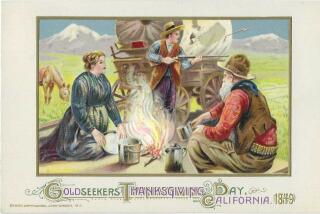False tales of turkey on a tray
- Share via
In today’s image-mad world, what you do in life has become passe. It’s what people think you do that matters. And, don’t worry, everyone’s too busy to check your resume for embellishments.
Perhaps no one illustrates this new world better than the dearly departed octogenarian who claimed to have invented the frozen TV dinner.
Gerry Thomas, who died July 18, regaled reporters with tales of refrigerated railcars crisscrossing the nation, carrying 520,000 pounds of surplus turkey.
As he told it, when panicky Swanson executives asked their employees for ideas on how to unload the frozen birds, Thomas dreamed up the idea of a frozen turkey meal, designed the tray and coined the name -- TV dinner.
Great story, but it didn’t happen. According to Thomas, who worked as a salesman for Swanson in the 1950s, unusually warm weather in late 1951 reduced Thanksgiving demand for turkeys, creating a surplus of the frozen birds.
But 1951 was one of the coldest winters on record. And ex-Swanson employees say the company owned eight stories of freezer space in Omaha and wouldn’t have needed refrigerated trains to store any surplus fowl.
In 2003, when The Times asked Thomas about discrepancies in his tale, he said the railcar story was “a metaphor.”
But obituary writers overlooked that revelation when memorializing Thomas this month as the genius behind the TV dinner. (Some writers also said Thomas has a spot on the Hollywood Walk of Fame. Also not true.)
One of the dirty little secrets of journalism is that reporters rarely have time to investigate every claim people make about their pasts. If you want to embellish, just fool one reporter for one article, then you can use it to show other reporters that your story checked out. It also helps to adopt such accouterments as the cufflinks Thomas wore shaped like TV dinner trays.
Never mind that Swanson family members, historians and frozen-food industry officials from the early 1950s have all contradicted Thomas’ tale. Or that, in 1944, the W.L. Maxson Co. created the real first frozen dinner, which was sold to the Navy and later to the airlines. Or that FrigiDinner, not Thomas, devised the first aluminum tray for frozen meals in 1947. Or that several of Thomas’ former colleagues say he had little or nothing to do with Swanson’s product.
A former Swanson publicist, when asked about phony claims of credit, recalled a remark made by President Kennedy after the Bay of Pigs fiasco: “There’s an old saying that victory has a hundred fathers and defeat is an orphan.”
Indeed. The line was used in a 1951 movie, “The Desert Fox.” And the movie, in turn, swiped it from a 1942 diary entry by Benito Mussolini’s son-in-law, Count Galeazzo Ciano.
Lord knows where he got it.
More to Read
Eat your way across L.A.
Get our weekly Tasting Notes newsletter for reviews, news and more.
You may occasionally receive promotional content from the Los Angeles Times.







